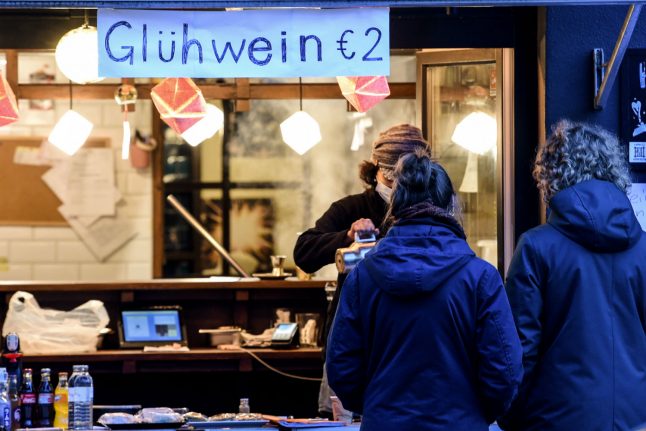Restaurants, bars, art galleries, theatres and gyms are closed until the end of the month as part of a nationwide partial shutdown.
EXPLAINED: What closes and stays open across Germany's states?
The aim is to bring the situation under control so that hospitals do not become overrun and so that people can meet again at Christmas time.
As part of the measures, the government and states decided on this general rule: only members of two households can meet in public, with a maximum of 10 people in total. There's a strong recommendation not to gather privately.
But contact restrictions can differ from state to state, and in Berlin the rules are slightly different.
This is how many people you can meet in Berlin:
In Berlin the rules apply in public and private spaces until the end of November 30th.
Here's what the Senate says: “Only members of your own household and a maximum of two persons from other households, OR up to 10 persons from a maximum of two households are permitted to be together in public and private spaces. In any case, no more than 10 persons may be together at any one time.”
That means that you can, for example, invite two friends, who each come from different households, into your home, or meet them in a park.
Or you can meet with up to 10 people from a maximum of two households.
READ ALSO: How many people can I meet during Germany's partial lockdown?
Are there any exceptions?
Yes, exceptions are made for children under the age of 12 if they belong to a common care group or school class.
What else should you do when coming into contact with people?
The Berlin Senate says that everyone in Berlin must “if possible and reasonable to do so” keep a minimum distance of 1.5m from all people who do not belong to your own household.
There are exceptions for spouses and life partners as well as people you care for.
Berlin authorities also “strongly recommend that the mouth and nose be covered in some way”.
That can be a homemade mask or scarf. This recommendation applies in public places and “especially when you are coming into contact with people who are at particular risk”.
To see all of Berlin's measures visit the Senate website.



 Please whitelist us to continue reading.
Please whitelist us to continue reading.
Member comments